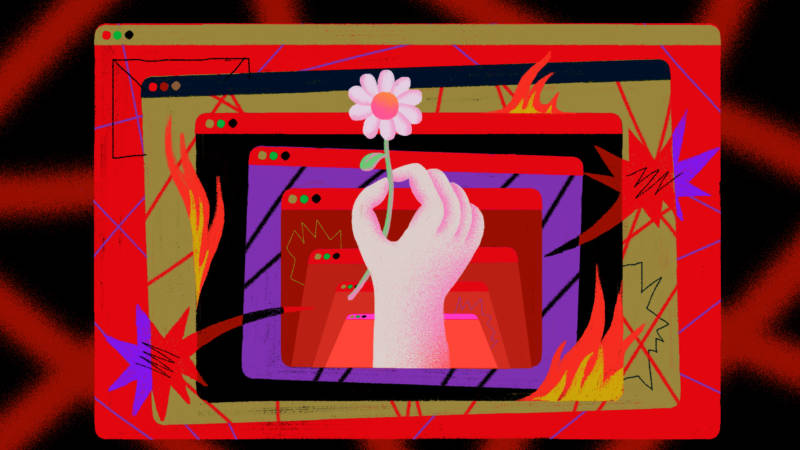It's not just happiness that spreads. Unhappiness and anger can be contagious too.
And you don't have to be in the same house or city to catch someone else's emotions. There's evidence that emotional contagion can spread through our digital interactions too.
Say you're in a negative mood, and you text your partner. A research study, dubbed, "I'm Sad You're Sad," documented that in these types of text exchanges, your partner is likely to both sense your emotion and mirror it.
So, just how far does this go? A study of nearly 700,000 Facebook users suggests we can pick up on — and mirror — the emotions we encounter in our social media feeds too.
As part of the study, users' news feeds were altered. Some people in the study began to see more positive posts, while others began to see more negative posts.
"We found that when good things were happening in your news feed — to your friends and your family — you also tended to write more positively and less negatively," says Jeff Hancock, a communications researcher at Stanford University and author the two studies on digital interactions
And the reverse was true too. Viewing more negative posts prompted people to write more sad or angry things. Overall, the effects were very small, compared with what has been documented in face-to-face interactions, "but [the study] suggested that emotions can move through networks through contagion," Hancock says.
A lot of us have seen this play out on our social media feeds, especially on Twitter. Late-night TV host Jimmy Kimmel pokes fun at angry tweets by asking celebrities and famous athletes to read aloud the mean things that have been tweeted about them. "Draymond Green's jump shot is almost as ugly as his face," NBA player Draymond Green read to an audience last June. "Whoa!" the audience responded.
It's funny in the moment. But when you're on the receiving end of a personal attack, it's hurtful. And it increases the likelihood that you'll lash out in return.
One study finds there may be a little bit of troll in each of us. If you read a nasty message from a troll that dishes out sarcasm or a personal attack and you happen to be in a bad mood, the research shows you're more likely to copy the troll-like behavior.
Bottom line: It's easier to be mean from behind a screen. The rules of face-to-face interactions don't exist. "There are fewer cues," Hancock says. You don't see or hear the person on the receiving end of your tweet or post. "That makes it a little harder to view you as a person," he says.
This is what happened to a Twitter user named Michael Beatty who lives in Alabama. He's 65 and served in the military during the Vietnam War. Earlier this year, he got ticked off when he read a tweet written by comedian and actor Patton Oswalt. It was a negative tweet about President Trump.
"So I did a knee-jerk reaction," Beatty told us. " I sent him two tweets back."
Beatty says he told Oswalt: "I enjoyed seeing your character in [the movie] Blade: Trinity die so horribly." In another tweet he poked fun at the actor's height.
Looking back, Beatty says, "it was harsh, uncalled for, embarrassing."



9(MDAxOTAwOTE4MDEyMTkxMDAzNjczZDljZA004))